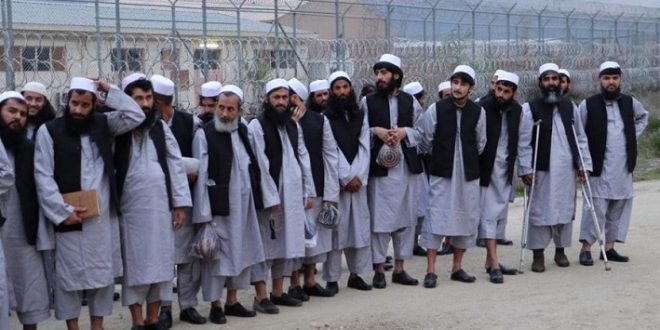Recent peaceful overtures from the Afghan government and the Taliban are promising as they contribute to taking Afghanistan bit by bit closer to the launch of intra-Afghan talks and a solution to the Afghan war. Most of all, the accelerated prisoner swap process is furthering the détente between the belligerent parties. The government has confirmed releasing 3,000 Taliban inmates across the country, with 1,000 of them over the past two days. The sped-up exchange of prisoners has been happening following President Ashraf Ghani’s order on Eid-ul-Fitr occasion to release 2,000 insurgents. The Taliban have also reciprocated as the total number of government prisoners released by them reached 420 so far. As the circumstances point to positive developments with regard to all-Afghan negotiations, there have been some concerns over reported disarray in Taliban leadership due to emerging disagreements. According to reports, Mullah Yaqoob, the son of Mullah Omar – founder of the Taliban – has taken over as interim commander following disagreements among members of the group over the leadership, after several senior Taliban leaders fell ill to coronavirus. Haibatullah Akhundzada was said to have been absent from meetings for some weeks and that his place was taken by Sirajuddin Haqqani. But now even he has contracted COVID-19. In the days leading up to Mullah Yaqoob’s taking reins, it is said some members of the political office in Doha have been removed. This leadership crisis over decision-making comes at a critical time for Afghanistan. The Afghan government has only recently resolved the power struggle tensions that arose due to the last presidential election – something that inordinately disrupted the peace process. The concerns about Taliban leadership vacuum are deemed worrisome because some of the insurgent group’s leadership is reportedly pro-peace while some aren’t. Any disunity in the rebel group could affect the next phase of the peace process, namely the intra-Afghan talks. This is while some Afghans believe Mullah Yaqoob’s coming into the picture is the handiwork of Pakistani intelligence network that wants to re-assert control over the movement. “By pushing Mullah Yaqoob to the de facto leadership of the Taliban, ISI is trying to weaken the role of some elder members of the Quetta Shura Taliban who had lived in Afghanistan in the past and have some sympathy for Afghanistan,” believes former spy chief Rahmatullah Nabil. Although the influence of Pakistan in pulling the strings of the Afghan Taliban is a fact now, the insurgents need to come to the fore and assure of no disruption in their commitments. The peace process has come a long way considering the achievements so far; thus, risking them over petty power struggles is going to scuttle and jeopardize the whole peace process merely at the behest of spoilers and foreigners.

 Afghanistan Times
Afghanistan Times



